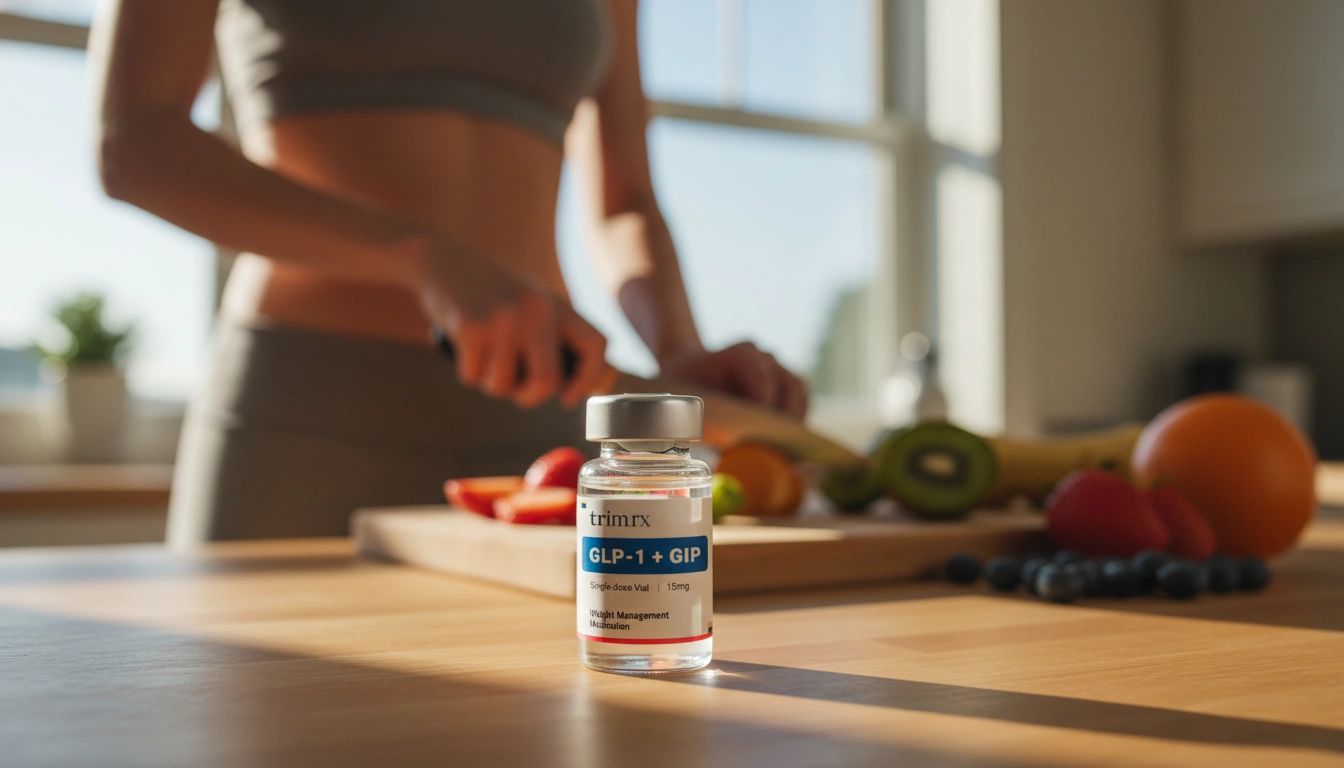Are Compounded GLP-1 Safe? Navigating the Landscape of Weight Loss Medications

Introduction
The landscape of weight loss medications has undergone a significant transformation in recent years, with glucagon-like peptide-1 (GLP-1) receptor agonists gaining immense popularity for their effectiveness in managing weight and improving metabolic health. However, as demand surged, so did the emergence of compounded GLP-1 medications—custom formulations that promise to fill the gaps left by FDA-approved options. This raises a crucial question for many: Are compounded GLP-1 safe?
The topic of compounded medications is laden with complexity. While they can serve a vital role in patient care, especially during drug shortages, they also come with inherent risks due to a lack of FDA approval and oversight. As we delve into this topic, we aim to provide a comprehensive understanding of what compounded GLP-1 medications are, the safety concerns surrounding them, and how to make informed choices in the weight loss journey.
By the end of this post, readers will gain insight into the safety, efficacy, and regulatory landscape of compounded GLP-1 medications. We will explore the role of telehealth in personalized weight loss solutions, such as those offered by TrimRx, and provide guidance on navigating the complexities of compounded medications.
Our discussion will unfold in several sections: we’ll start with an overview of what compounded GLP-1 medications are, followed by an examination of their safety, the importance of sourcing them from reputable pharmacies, and the role of personalized care in achieving sustainable weight loss. As we explore these topics, we invite you to consider how this information might apply to your own weight loss journey.
Understanding Compounded GLP-1 Medications
What Are Compounded GLP-1 Medications?
Compounded GLP-1 medications are custom formulations that include the same active ingredients found in FDA-approved drugs like Ozempic® and Wegovy®. Compounding pharmacies create these preparations to meet specific patient needs—whether due to allergies, dosing requirements, or supply shortages of commercially available medications.
The compounding process involves altering existing medications by changing their form (e.g., turning a tablet into a liquid), adjusting dosages, or combining multiple medications into one. The rise of compounded GLP-1 medications can be traced back to shortages of popular weight loss drugs, which have prompted patients and providers to seek alternative solutions.
The Demand for Compounded GLP-1s
The demand for GLP-1 receptor agonists has skyrocketed due to their effectiveness in promoting weight loss and managing conditions like type 2 diabetes. As a result, many patients have turned to compounded versions when FDA-approved options are unavailable. However, this trend raises concerns about the potential risks associated with compounded medications.
Safety Considerations for Compounded GLP-1 Medications
Lack of FDA Approval
One of the primary safety concerns surrounding compounded GLP-1 medications is that they are not FDA-approved. This means that these formulations have not undergone the rigorous testing and evaluation that FDA-approved drugs must complete. As a result, the safety, effectiveness, and quality of compounded GLP-1 medications can vary significantly.
The FDA has expressed concerns about compounded GLP-1 products, particularly regarding dosing errors and the potential for contamination. Reports have indicated that some patients experienced adverse events related to incorrect dosing or the presence of impurities in compounded medications.
Risks of Dosing Errors
Dosing errors are a significant concern with compounded GLP-1 medications. The FDA has reported multiple incidents where patients miscalculated their dosages or where healthcare providers prescribed doses beyond what is recommended in the FDA-approved versions. This has led to serious adverse events, including gastrointestinal issues and other complications.
Patients need to be aware of the risks associated with dosing compounded medications. It is crucial to work with a healthcare provider who can ensure that the correct dose is prescribed and that the medication is administered safely.
Importance of Quality Control
Quality control is paramount when it comes to compounded medications. While some compounding pharmacies adhere to strict quality standards and source their ingredients from FDA-registered facilities, others may not maintain the same level of oversight. This inconsistency can pose risks for patients who rely on compounded GLP-1 medications.
To mitigate these risks, patients should prioritize sourcing their compounded medications from reputable pharmacies. At TrimRx, we partner with FDA-registered and inspected pharmacies to ensure that the medications prescribed to our patients meet rigorous quality standards.
Navigating the Compounding Landscape
Choosing a Reputable Pharmacy
When considering compounded GLP-1 medications, selecting a reputable pharmacy is essential. Here are some guidelines to help you make an informed choice:
-
Require a Prescription: Legitimate pharmacies should require a valid prescription from a licensed healthcare provider. This is a critical step in ensuring that the medication is appropriate for your needs.
-
Check Licensing: Ensure that the pharmacy is licensed in your state and adheres to state regulations. This provides an additional layer of assurance regarding the pharmacy’s practices.
-
Communication: A reputable pharmacy should have licensed pharmacists available to answer your questions and provide guidance on medication administration.
-
Accreditation: Look for pharmacies accredited by recognized organizations, such as the Pharmacy Compounding Accreditation Board. This certification indicates that the pharmacy meets specific quality and safety standards.
By following these guidelines, you can better navigate the complexities of compounded medications and prioritize your health and safety.
The Role of Telehealth in Personalized Care
At TrimRx, we understand that the journey to weight loss is unique for each individual. Our approach combines advanced medical science with telehealth innovations to provide personalized, medically supervised care designed to support sustainable weight loss.
Our platform allows patients to complete a free assessment quiz, which helps determine eligibility for prescription GLP-1 medications. Once qualified, patients receive a personalized treatment plan that includes doctor consultations, medication, lab work, and unlimited support—ensuring a holistic approach to weight loss.
Encouraging a Holistic Approach to Weight Loss
Weight loss is not solely about medication; it encompasses lifestyle changes, emotional support, and ongoing education. To further support our patients, we offer quick-access supplements such as GLP-1 Daily Support and Weight Loss Boost. These supplements can be purchased without completing the quiz and serve as valuable tools alongside our personalized weight loss programs.
If you’re interested in exploring the benefits of our quick-access supplements, check out the following links:
Conclusion
In conclusion, the question of whether compounded GLP-1 medications are safe is multifaceted and requires careful consideration. While compounded medications can offer personalized solutions for patients, they also come with inherent risks due to the lack of FDA approval and potential dosing errors.
To navigate this landscape successfully, patients should prioritize sourcing medications from reputable pharmacies and work closely with healthcare providers to ensure safe dosing and administration. At TrimRx, we are committed to empowering individuals on their weight loss journeys through personalized care and innovative solutions.
As we continue to explore the evolving world of weight management, we encourage readers to stay informed and proactive about their health. By understanding the complexities of compounded GLP-1 medications and embracing personalized approaches, we can work together toward achieving sustainable weight loss and improved well-being.
FAQ
What are GLP-1 medications?
GLP-1 medications are a class of drugs that mimic the effects of the glucagon-like peptide-1 hormone. They are commonly used to treat type 2 diabetes and promote weight loss.
Are compounded GLP-1 medications safe?
Compounded GLP-1 medications are not FDA-approved, which means they have not undergone the same rigorous testing as commercial drugs. This raises concerns about their safety and effectiveness. It is crucial to source them from reputable pharmacies.
What are the risks associated with compounded GLP-1 medications?
The primary risks include dosing errors, contamination, and variability in quality. Patients should work closely with healthcare providers to ensure they are receiving appropriate doses.
How can I find a reputable compounding pharmacy?
Look for pharmacies that require prescriptions, are licensed in your state, have licensed pharmacists on staff, and are accredited by recognized organizations.
What support does TrimRx offer for weight loss?
TrimRx provides personalized weight loss programs, including doctor consultations, prescription medications, lab work, and unlimited support. We also offer quick-access supplements to complement your weight loss journey.

Transforming Lives, One Step at a Time
Keep reading
China’s Supreme Court Upholds Semaglutide Patent for Novo Nordisk
China’s Supreme People’s Court upholds Novo Nordisk’s semaglutide compound patent, supporting IP protection.
Over 600,000 Californians Risk Losing Access to GLP-1 Weight-Loss Drugs
California’s Medi-Cal will stop covering GLP-1 weight-loss drugs for weight-loss-only prescriptions, effective Jan. 1, 2026.
Weight-Loss Pill Approval Likely to Prompt Overhaul of Packaged Food and Fast-Food Products
FDA approval of GLP-1 weight-loss pills may prompt food makers and restaurants to shift to high-protein, smaller-portion products.



